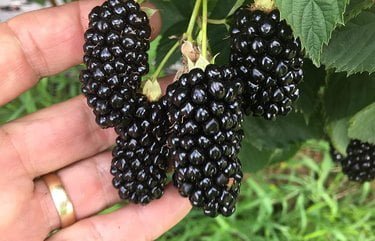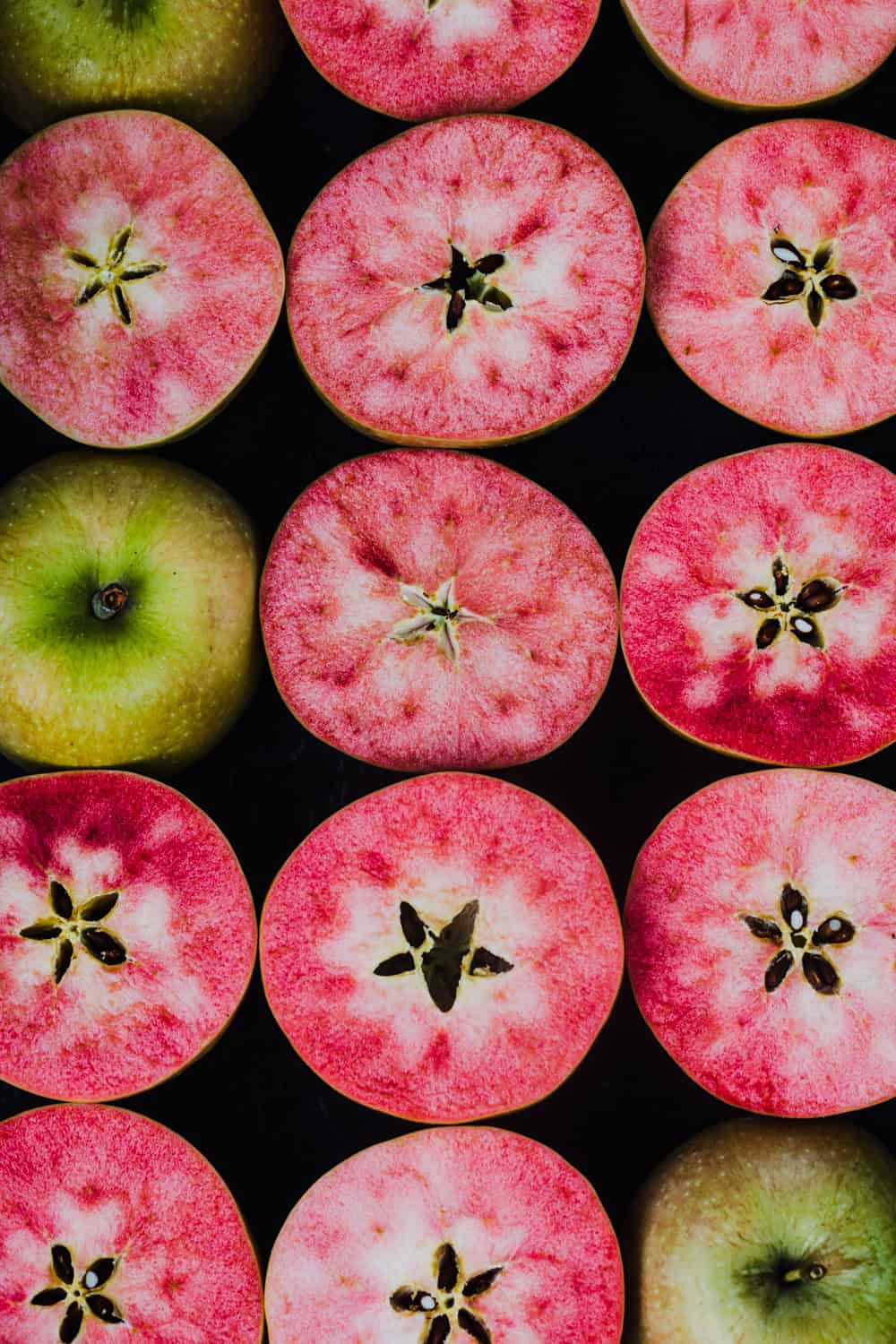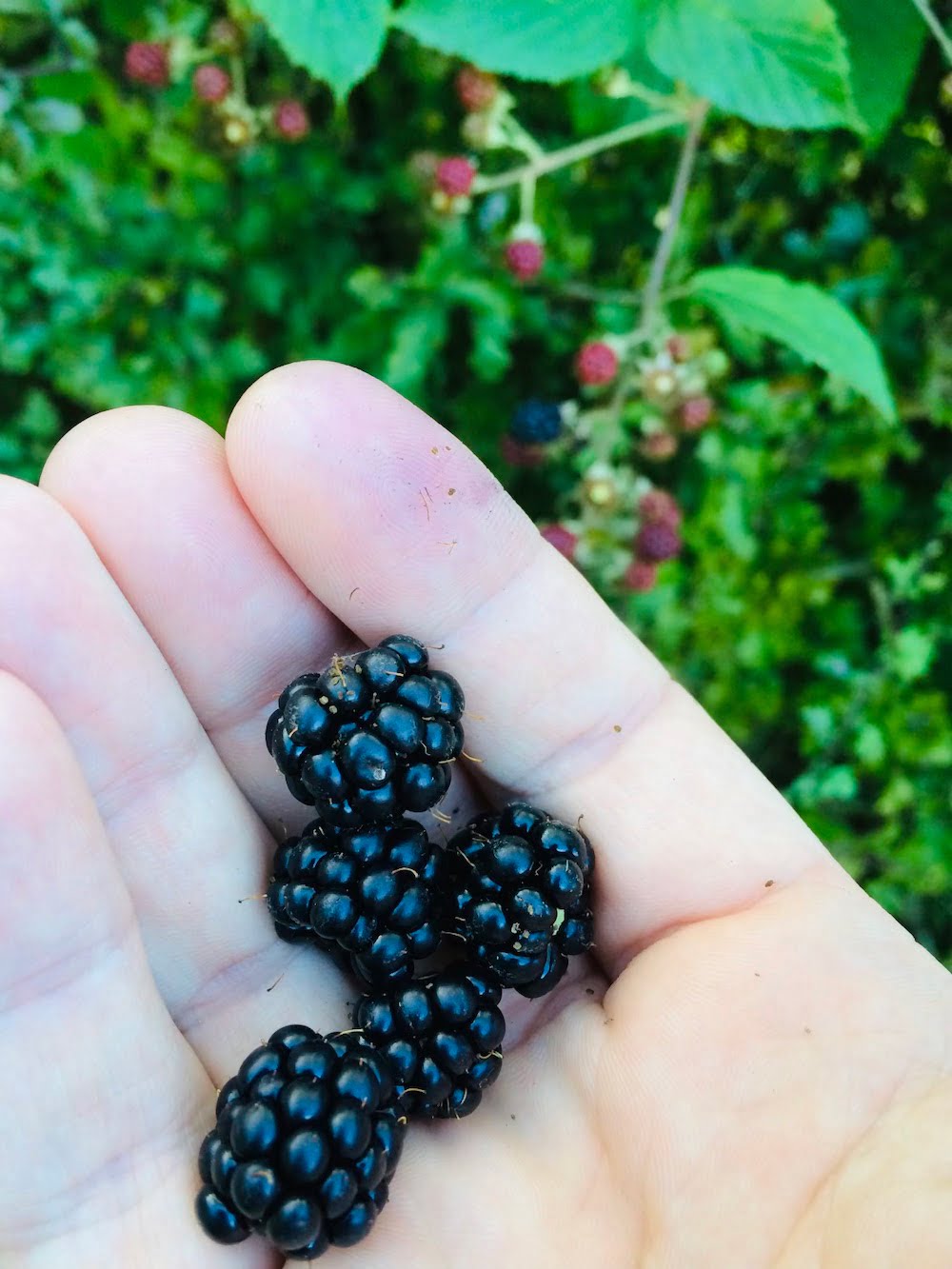Blackberries, the small and succulent dark berries that are a staple in desserts and jams, often leave a bittersweet taste on your palate. Have you ever wondered why this is the case? This article aims to unravel the mystery behind why blackberries have a naturally bitter flavor. By exploring the chemical compounds present in these delectable fruits and the factors that contribute to bitterness, we will gain a better understanding of why blackberries reveal their complex taste profiles. So, let us embark on a journey to uncover the secrets behind the intriguing bitterness of blackberries.
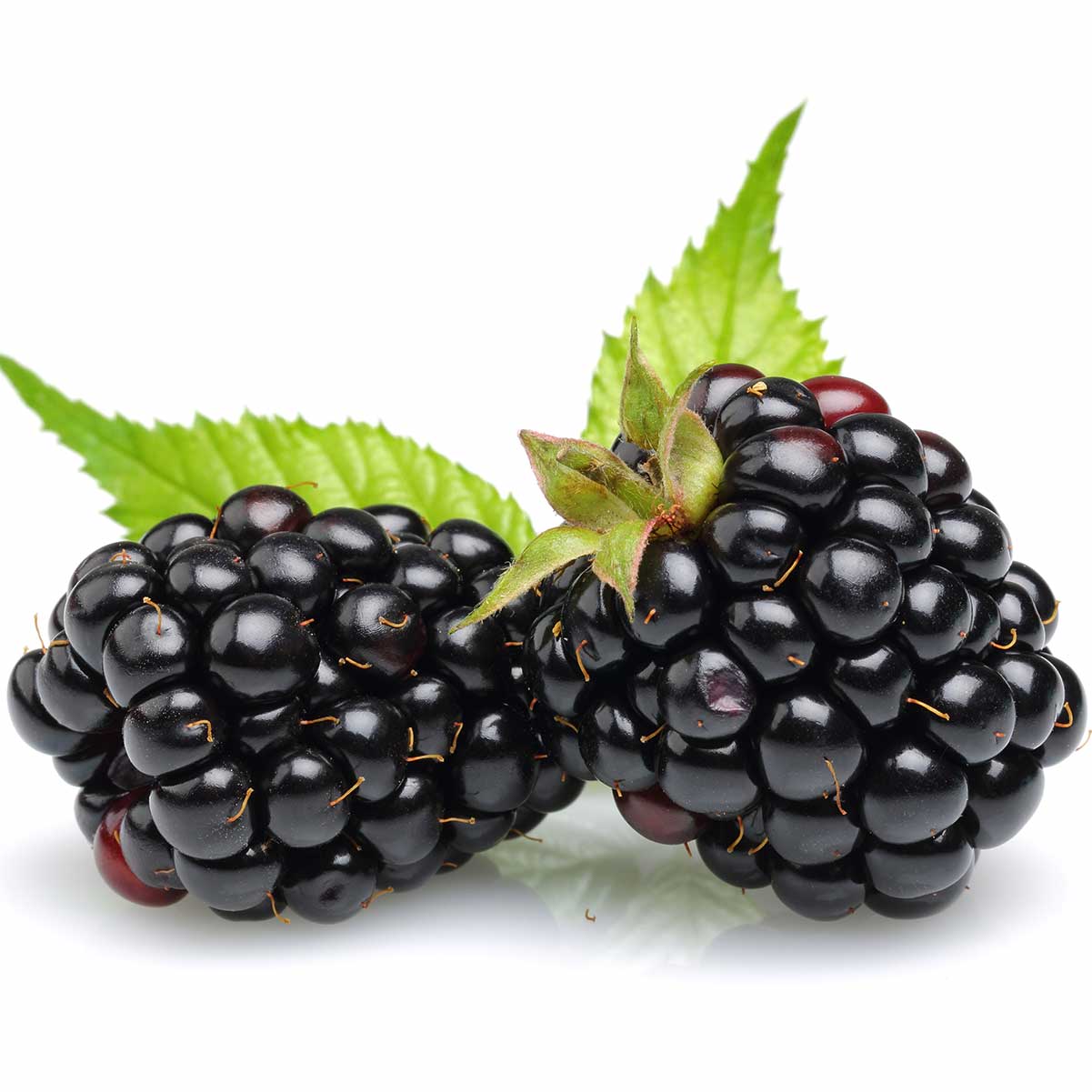
The Science Behind Blackberry Bitterness
Blackberry bitterness can be attributed to several factors, including the presence of specific compounds, variety and maturity of the fruit, as well as environmental factors. Understanding the science behind blackberry bitterness can provide insight into how to reduce it and enhance the overall enjoyment of this delicious fruit.
Anthocyanins and Tannins
Anthocyanins and tannins are two groups of compounds found in blackberries that contribute to their bitter taste. Anthocyanins are responsible for the vibrant dark color of the fruit, but in some cases, they can also contribute to bitterness. Tannins, on the other hand, are a type of polyphenol that can create a dry and astringent sensation in the mouth, adding to the bitter flavor profile of blackberries.
Variety and Maturity
Different blackberry varieties can vary in their bitterness levels. Some varieties are naturally less bitter, while others may have a more pronounced bitter taste. Additionally, the stage of fruit maturity can also affect bitterness. Blackberries that are not fully ripe tend to be more bitter, while fully ripe berries are often sweeter and less bitter.
Environmental Factors
Environmental factors such as temperature, sunlight exposure, and soil conditions can influence the bitterness of blackberries. Extreme temperatures or prolonged exposure to direct sunlight can stress the plants and lead to increased bitterness in the fruit. Similarly, poor soil conditions or nutrient deficiencies can also contribute to a more bitter taste in blackberries.
Cultivation Techniques and Bitterness
Growers have implemented various techniques to mitigate blackberry bitterness, focusing on both the genetic aspect and the cultivation conditions. By understanding and applying these techniques, it is possible to enhance the sweetness and overall flavor of blackberries.
Genetic Modification
Advances in genetic modification have allowed scientists to develop blackberry varieties with reduced bitterness. Through selective breeding and genetic engineering, researchers have targeted specific genes involved in bitter compound production. This has resulted in the development of sweeter and less bitter blackberry cultivars that are increasingly favored by consumers.
Growing Conditions
The cultivation environment plays a crucial role in the development of blackberry bitterness. By optimizing growing conditions such as temperature, sunlight exposure, and soil quality, growers can influence the flavor of the fruit. Providing adequate water and nutrients, as well as implementing proper pruning and trellising techniques, can help create optimal conditions for blackberry plants, resulting in less bitter and more flavorful berries.
Harvesting and Storage
Careful consideration during the harvesting and storage process can also minimize blackberry bitterness. Blackberries should be picked at the peak of ripeness when they are plump and fully colored. Post-harvest handling, including rapid cooling and proper storage conditions, is essential to maintain the quality and reduce bitterness. Exposure to excessive heat or extended storage periods can accelerate the breakdown of sugars and contribute to increased bitterness.
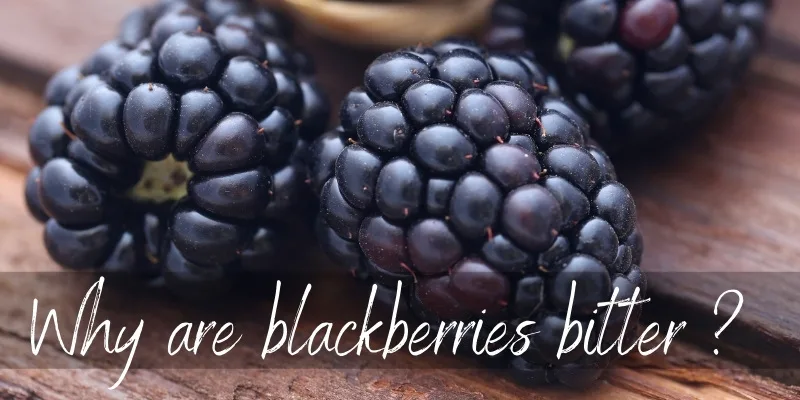
Health Benefits of Blackberries
Despite their bitterness, blackberries offer numerous health benefits. Rich in antioxidants and other beneficial compounds, these fruits have gained recognition for their potential to enhance overall well-being and protect against various health conditions.
Rich in Antioxidants
Blackberries are packed with antioxidants, which help combat oxidative stress and neutralize harmful free radicals in the body. These antioxidants, such as anthocyanins and vitamin C, contribute to blackberries’ vibrant color and play a crucial role in supporting overall health.
May Improve Brain Function
Research suggests that the antioxidants and bioactive compounds found in blackberries may support brain health and cognitive function. Studies have shown that these compounds can help reduce oxidative stress and inflammation in the brain, potentially improving memory, attention, and overall mental well-being.
Potential Cancer-Fighting Properties
Blackberries contain a variety of compounds that have been associated with potential anticancer effects. Their high antioxidant content, particularly anthocyanins, has been linked to a reduced risk of certain types of cancer, including breast, colorectal, and oral cancers. While more research is needed, adding blackberries to a balanced diet may contribute to a lower cancer risk.
Ways to Reduce Blackberry Bitterness
If you find blackberries to be too bitter for your taste, there are several strategies you can employ to enjoy them in a more palatable way. These methods can help minimize bitterness and enhance the overall flavor of the fruit.
Choose Fully Ripe Berries
Opting for fully ripe blackberries can significantly reduce bitterness. Fully ripe berries tend to be sweeter and less bitter compared to those that are under-ripe. Look for blackberries that are plump, uniformly colored, and easily detach from the plant. A gentle squeeze should yield a slight give without being too soft.
Mixing with Other Fruits
Blending blackberries with other naturally sweet fruits can help balance out the bitterness. Combining blackberries with fruits like strawberries, raspberries, or bananas can provide a harmonious blend of flavors and make the overall taste more enjoyable. Experiment with different combinations to find your preferred balance.
Cooking or Processing
Cooking or processing blackberries can help reduce bitterness and enhance their overall flavor. Heat breaks down some of the bitter compounds, resulting in a sweeter taste. Try incorporating blackberries into pies, jams, or sauces, or even consider making blackberry compote or syrup. These cooking methods can transform the bitterness into a delicious sweet-tart flavor.
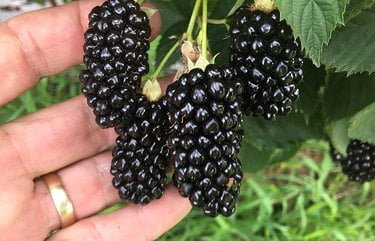
Culinary Uses for Bitter Blackberries
While reducing bitterness is a common goal when enjoying blackberries, there are also culinary applications where the bitterness can be embraced. These methods can highlight the unique flavors of bitter blackberries and create delicious dishes across a range of culinary styles.
Baking and Desserts
Bitter blackberries can add depth and complexity to baked goods and desserts. Incorporating them into pies, tarts, or muffins can create a tantalizing flavor contrast. The sweetness of the pastry or batter can balance out the bitterness, resulting in a delightful combination of tastes.
Infused Beverages
Blackberries are often used to infuse beverages, including cocktails, teas, and flavored waters. The bitterness of the blackberries can provide a refreshing and sophisticated element to these drinks. Muddled blackberries can be combined with spirits, such as gin or vodka, to create unique and flavorful cocktails.
Savory Dishes
Blackberries can also be used in savory dishes to add a touch of bitterness and complexity. Incorporating them into salads, salad dressings, or alongside roasted meats can create a unique flavor profile. The tangy and bitter taste of blackberries can complement savory ingredients, resulting in a harmonious blend of flavors.
Traditional Remedies for Bitterness
Throughout history, several traditional methods have been employed to reduce blackberry bitterness. While not scientifically proven, these remedies have been passed down through generations and are still used by some today.
Soaking in Saltwater
One common traditional method is to soak blackberries in saltwater before consuming them. This practice is believed to help reduce bitterness by extracting or neutralizing some of the bitter compounds. After soaking the berries, they can be rinsed thoroughly and enjoyed with reduced bitterness.
Sweetening with Sugar or Honey
Adding sweeteners such as sugar or honey to blackberries can mask the bitterness and bring out their natural sweetness. This technique is easy to implement and can be done by sprinkling sugar or drizzling honey over the berries before eating them. The added sweetness can counterbalance the bitterness and create a more palatable taste.
Blanching or Boiling
Blanching or boiling blackberries for a short period of time can help reduce bitterness. The heat applied during these processes breaks down some of the bitter compounds, resulting in a milder taste. However, it is important to note that overcooking can lead to a loss of flavor and texture, so caution should be exercised when using this method.
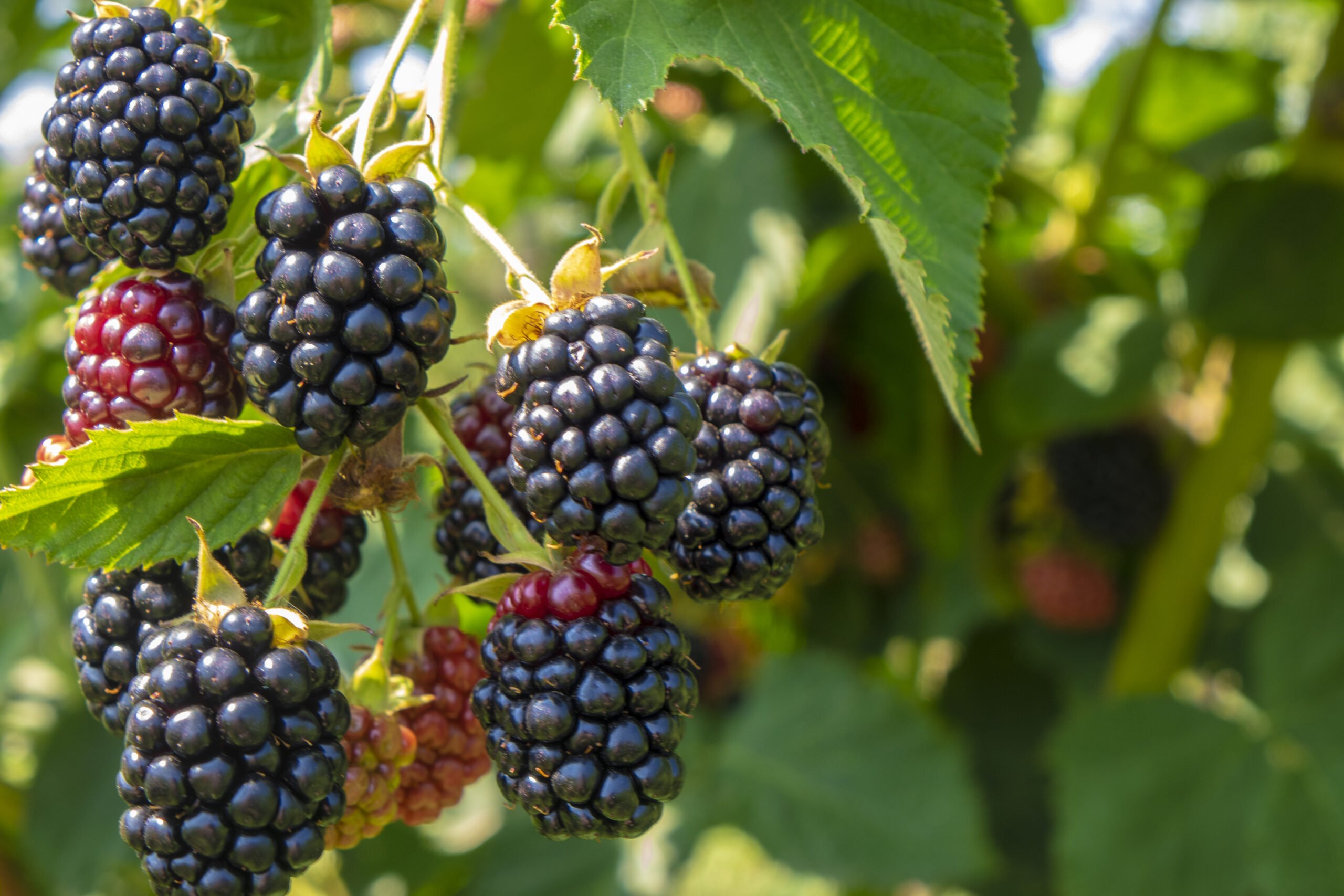
Common Myths and Misconceptions about Blackberry Bitterness
There are several common myths and misconceptions surrounding blackberry bitterness that can lead to misunderstandings about the fruit.
Bitterness Indicates Spoiled Fruit
Many people mistakenly believe that a bitter taste in blackberries indicates the fruit is spoiled or of poor quality. However, blackberries naturally have a degree of bitterness due to the compounds found in their composition. It is important to distinguish between natural bitterness and signs of spoilage, such as mold or off flavors.
All Blackberries Are Bitter
Another misconception is that all blackberries are inherently bitter. While it is true that blackberries can have a degree of bitterness, there are several varieties bred specifically for their sweetness. By selecting the right variety and ensuring proper ripening, it is possible to enjoy blackberries with a more subtle or even sweet flavor profile.
Blackberries Cannot Be Enjoyed Raw
Some individuals shy away from consuming raw blackberries due to their bitterness. However, many people find raw blackberries to be a delicious addition to their diet, especially when they are fully ripened and consumed in moderation. By following the methods mentioned earlier to reduce bitterness or incorporating blackberries into various culinary preparations, raw consumption can be an enjoyable experience.
The Role of Bitter Taste in the Plant Kingdom
Bitterness plays a significant role in the plant kingdom, serving as a defense mechanism and aiding in seed dispersal. Understanding the evolutionary purpose of blackberry bitterness provides insight into the broader ecological context of this taste sensation.
Bitterness as a Defense Mechanism
In the plant kingdom, bitterness often acts as a deterrent against herbivory. Bitter compounds are generally unappealing to many animals, as they are associated with toxicity or unpleasant tastes. By producing bitter compounds, plants like blackberries are better equipped to protect themselves from being eaten, allowing them to survive and reproduce.
Attracting Seed Dispersers
While bitterness may repel some animals, it can also help attract certain seed dispersers. Some animals have developed a preference for bitter tastes and are attracted to fruits containing bitter compounds. By enticing these animals to consume their fruits, plants like blackberries increase the chances of their seeds being dispersed over a wider range, ultimately benefiting their reproductive success.
Allelopathic Interactions
Bitter compounds produced by plants can also play a role in allelopathic interactions, influencing the growth and survival of neighboring plants. By releasing bitter substances into the soil or air, plants can inhibit the growth of competing species, gaining a competitive advantage in the ecosystem.
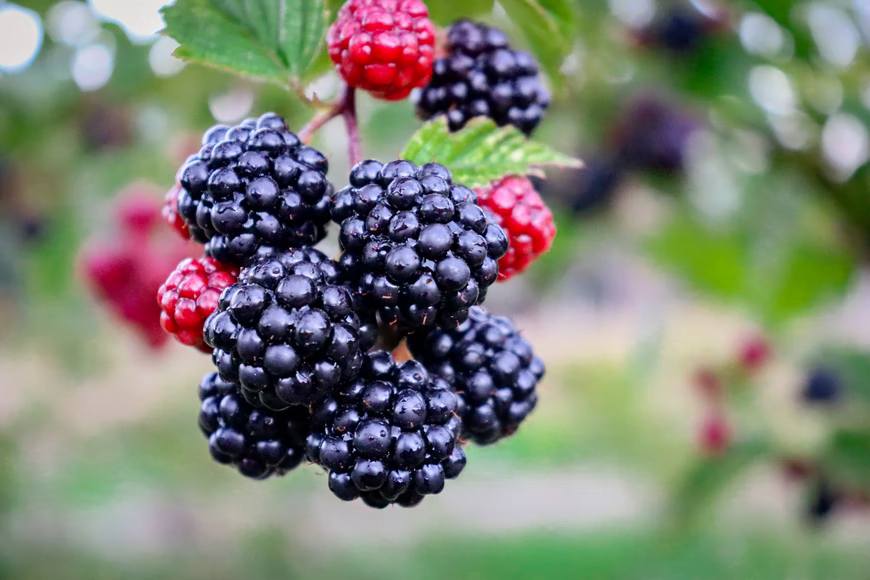
The Cultural Significance of Blackberries
Blackberries hold significant cultural importance in various societies, with roots in folklore, mythology, symbolism, traditions, and their representation in art and literature.
Folklore and Mythology
Blackberries have featured prominently in folklore and mythology across different cultures. In some traditions, blackberries were associated with fertility and abundance, symbolizing the bountiful harvest and the coming of prosperity. In other stories, blackberries held mystical properties or were believed to possess healing abilities.
Symbolism and Traditions
Blackberries have been used symbolically in different cultural contexts. They represent different ideas such as protection, transformation, and the cycle of life and death. Additionally, blackberries are often included in traditional celebrations, such as harvest festivals or seasonal religious ceremonies, signifying abundance and fruition.
Blackberries In Art and Literature
Artists and writers have drawn inspiration from the symbolism and beauty of blackberries. From paintings to poetry, blackberries have appeared in various artistic expressions throughout history. Their association with nature, growth, and life’s cyclical nature has made them a compelling subject for artists and writers alike.
Blackberry Varieties with Reduced Bitterness
For those who prefer a milder taste, several blackberry varieties are known for their reduced bitterness. These varieties have been selectively bred for their sweeter flavor profile and are highly sought after for their improved taste.
Marionberries
Marionberries are a popular blackberry variety known for their exceptional sweetness and juiciness. These berries have a rich and complex flavor, with hints of blackberry and raspberry. Marionberries are prized for their low bitterness, making them a favorite choice for fresh consumption, baking, and jam-making.
Boysenberries
Boysenberries are a hybrid fruit resulting from a cross between raspberries, blackberries, and loganberries. This unique combination gives boysenberries a distinctive flavor that is both sweet and tart, with minimal bitterness. They are often used in various culinary creations, including desserts, beverages, and preserves.
Olallieberries
Olallieberries are another hybrid blackberry variety with a naturally sweet and tangy taste. They have a dark purple color and a soft texture, making them perfect for eating fresh or incorporating into pies, jams, and syrups. Olallieberries are highly regarded for their flavor and are a preferred choice for those seeking a less bitter blackberry experience.
In conclusion, the science behind blackberry bitterness stems from the presence of compounds like anthocyanins and tannins, variety and maturity of the fruit, and environmental factors. Through cultivation techniques, consumers can enjoy blackberries with reduced bitterness. Despite their bitterness, blackberries offer numerous health benefits and can be enjoyed through various methods. From traditional remedies to culinary uses, blackberries hold cultural significance and continue to captivate artists and writers. With blackberry varieties like marionberries, boysenberries, and olallieberries, individuals can enjoy the fruit with less bitterness and explore a range of flavors.
